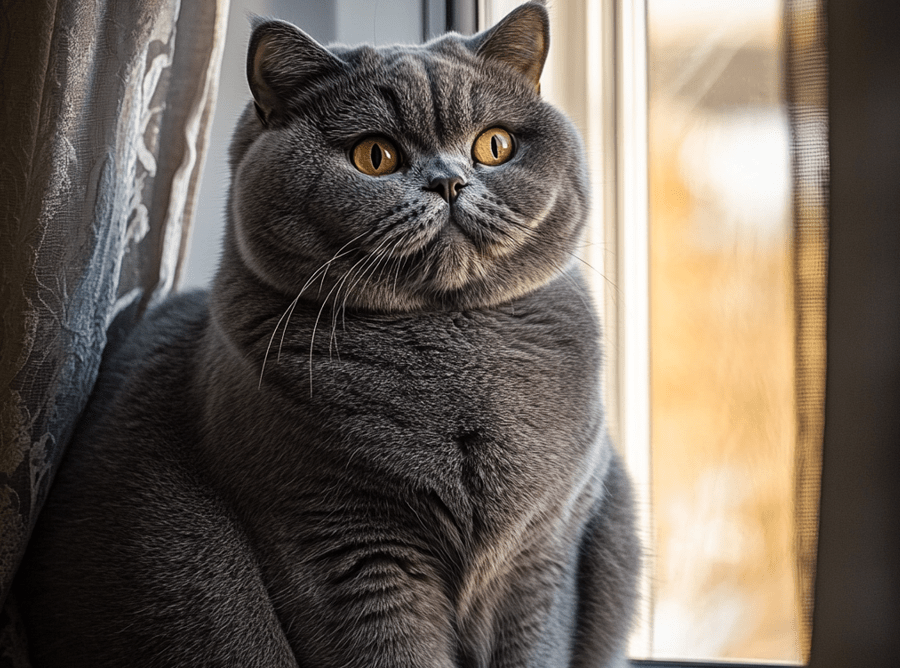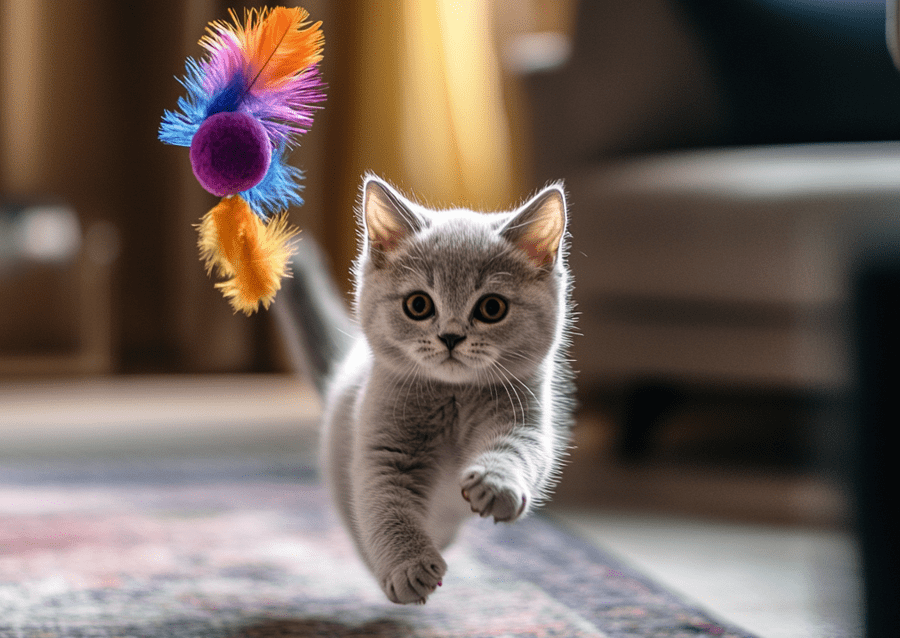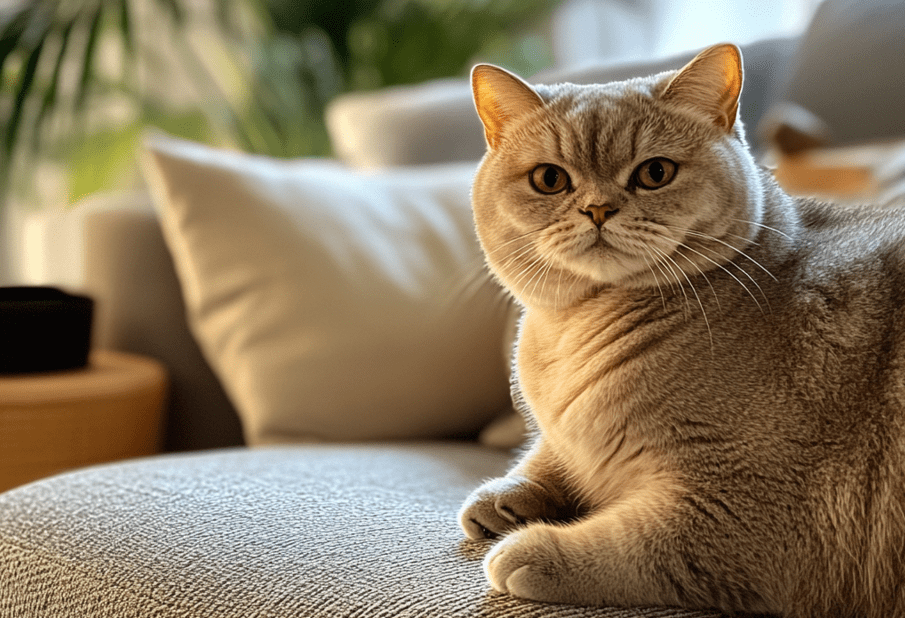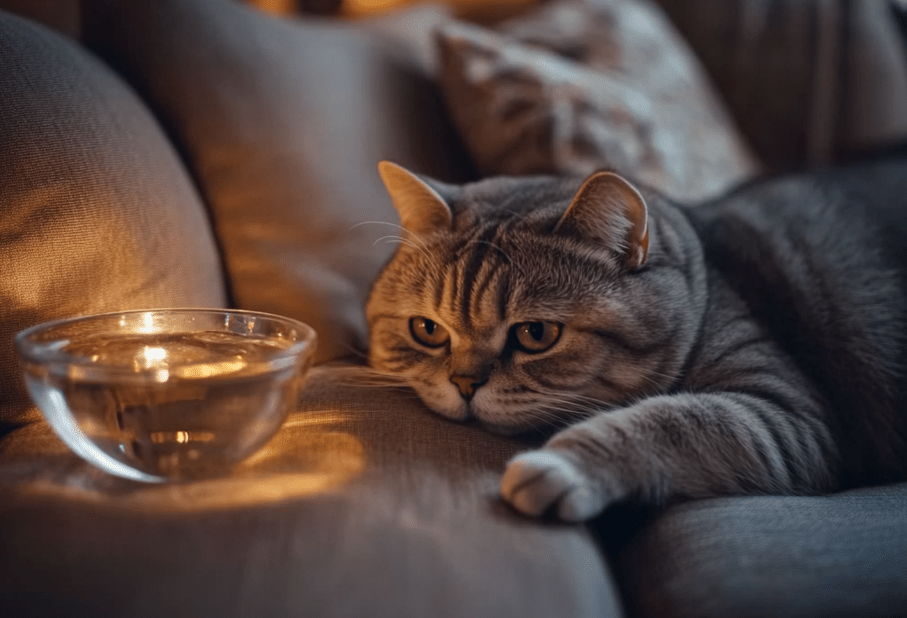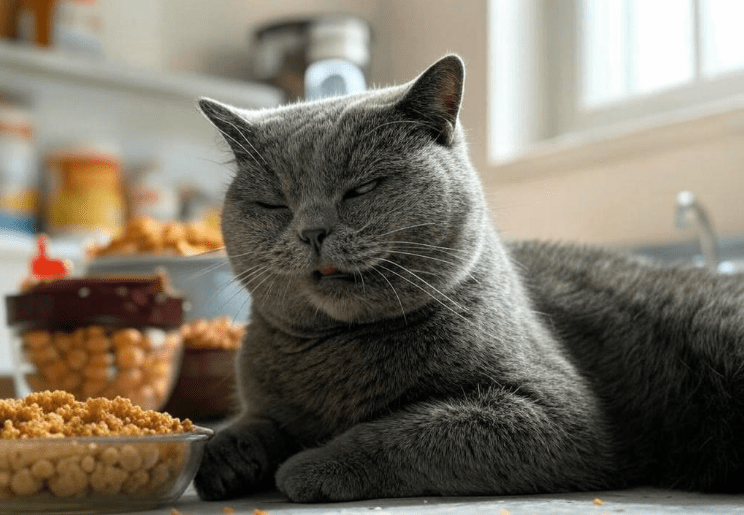
British Shorthairs are beloved for their plush coats, round faces, and calm demeanors, but their unique physiology demands tailored nutrition. A high-protein diet for British Shorthair cats is essential to support their muscle development, energy needs, and overall health. This comprehensive guide explores why high-protein diets are critical for British Shorthairs, how to choose the right food, and practical tips for implementation. Whether you’re a new or seasoned British Shorthair owner, this article will equip you with the knowledge to optimize your cat’s nutrition.
Understanding the British Shorthair’s Unique Needs
British Shorthairs are a robust, muscular breed with a stocky build and dense coat. Their physical characteristics, combined with a relatively low activity level, make proper nutrition critical to prevent obesity and maintain lean muscle mass. Unlike more active breeds, British Shorthairs have a slower metabolism, which means their diet must be carefully balanced to avoid excess weight gain while providing sufficient energy and nutrients.
Protein is the cornerstone of feline nutrition, as cats are obligate carnivores. This means they rely on animal-based proteins to meet their nutritional needs. For British Shorthairs, a high-protein diet supports their muscular structure, promotes satiety, and helps regulate blood sugar levels, reducing the risk of diabetes—a condition to which this breed is predisposed.
Why Protein Matters for Cats
Cats lack the metabolic pathways to derive energy efficiently from carbohydrates. Instead, they rely on amino acids from proteins for energy, tissue repair, and immune function. Essential amino acids like taurine, arginine, and methionine are critical for heart health, vision, and digestion. A high-protein diet ensures British Shorthairs receive these nutrients in adequate amounts, supporting their overall well-being.
British Shorthairs, with their sturdy frames, require protein to maintain muscle mass, especially as they age. A diet lacking in protein can lead to muscle loss, lethargy, and a weakened immune system, making it vital to prioritize protein-rich foods.
Benefits of a High-Protein Diet for British Shorthair Cats
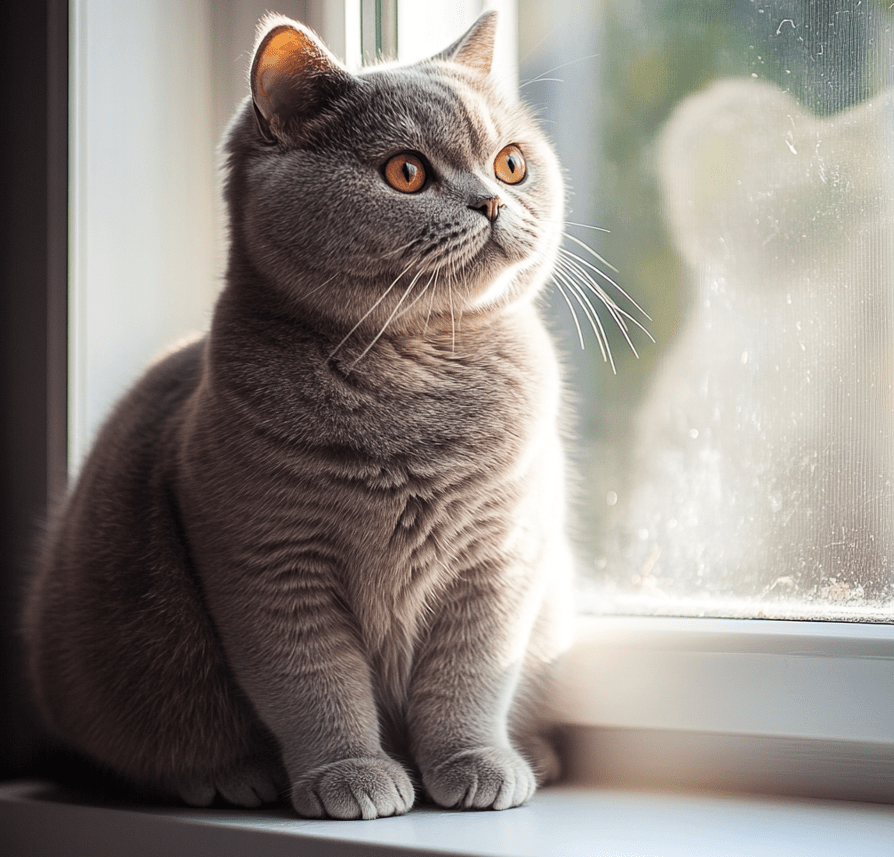
A high-protein diet offers numerous benefits tailored to the British Shorthair’s needs. Below are the key advantages:
1. Supports Muscle Development and Maintenance
British Shorthairs are known for their muscular, compact bodies. A high-protein diet provides the amino acids needed to build and maintain lean muscle mass. This is particularly important for indoor British Shorthairs, who may not get as much exercise as more active breeds. Protein helps preserve muscle tone, ensuring your cat remains strong and agile.
2. Promotes Healthy Weight Management
Obesity is a common issue for British Shorthairs due to their sedentary nature and love for food. High-protein diets are naturally more satiating than carbohydrate-heavy diets, helping your cat feel full longer and reducing overeating. Protein also has a higher thermic effect, meaning the body burns more calories digesting it compared to fats or carbs, aiding in weight control.
3. Enhances Coat and Skin Health
The British Shorthair’s dense, plush coat is one of its defining features. Protein-rich diets provide the building blocks for keratin, the protein that forms hair and skin. A diet high in quality animal proteins, such as chicken, turkey, or fish, can enhance coat shine, reduce shedding, and prevent skin issues like dryness or flakiness.
4. Supports Digestive Health
High-protein, low-carbohydrate diets are easier for cats to digest, as they align with their natural dietary needs. British Shorthairs can be prone to digestive sensitivities, and a diet rich in animal-based proteins minimizes the risk of gastrointestinal upset caused by fillers like corn, wheat, or soy.
5. Reduces Risk of Chronic Diseases
A high-protein diet can help mitigate the risk of obesity-related conditions like diabetes and joint issues. By stabilizing blood sugar levels and supporting joint health through amino acids like glucosamine (found in some protein sources), a high-protein diet promotes long-term health for your British Shorthair.
How to Choose the Right High-Protein Food for Your British Shorthair
Not all cat foods are created equal, and selecting the right high-protein diet requires careful consideration. Here’s what to look for when choosing food for your British Shorthair:
1. Check the Protein Content
Look for cat foods with at least 30-40% crude protein on a dry matter basis. Wet foods typically have lower protein percentages due to moisture content, so aim for 8-10% protein in canned food. The protein should come primarily from animal sources, as plant-based proteins (like pea protein) lack the essential amino acids cats need.
2. Prioritize Named Animal Proteins
The ingredient list should feature named animal proteins (e.g., “chicken,” “turkey,” “salmon”) as the first ingredient. Avoid vague terms like “meat by-products” or “animal digest,” which may indicate lower-quality protein sources. High-quality proteins ensure your British Shorthair receives bioavailable nutrients.
3. Minimize Carbohydrates
Carbohydrates should be kept to a minimum, as they provide little nutritional value for cats. Look for foods with low-carb ingredients and avoid those with fillers like corn, wheat, or rice. Grain-free options can be beneficial, but ensure the food isn’t replacing grains with high-carb alternatives like potatoes or tapioca.
4. Consider Wet vs. Dry Food
Wet food is often preferable for British Shorthairs due to its high moisture content, which supports urinary health and helps prevent obesity. Many wet foods also have higher protein content and fewer carbohydrates than dry kibble. However, high-quality dry food can be part of a balanced diet if portion control is maintained.
5. Look for Added Nutrients
Choose foods fortified with taurine, omega-3 fatty acids, and vitamins to support heart health, coat quality, and immune function. Some high-protein foods also include joint-supporting ingredients like glucosamine and chondroitin, which are beneficial for British Shorthairs as they age.
6. Avoid Artificial Additives
Artificial colors, flavors, and preservatives can cause allergic reactions or digestive issues in sensitive British Shorthairs. Opt for natural, minimally processed foods to ensure your cat’s diet is as clean as possible.
Wet vs. Dry: Which Is Best for a High-Protein Diet?
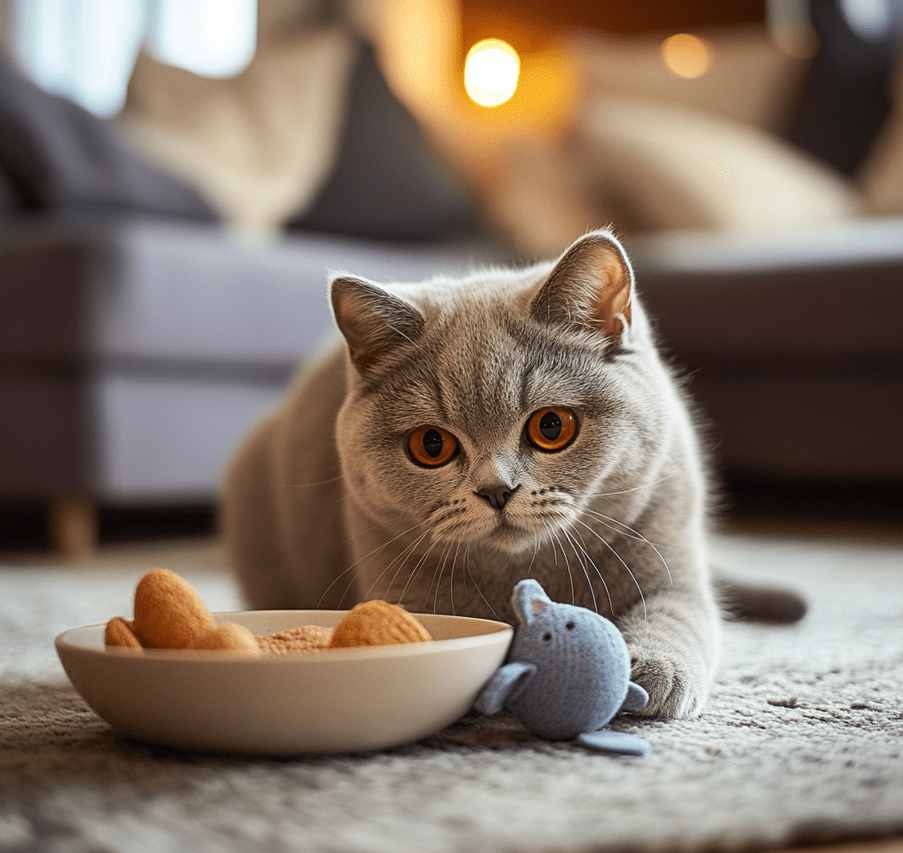
The debate between wet and dry food is common among cat owners. For British Shorthairs, both can be part of a high-protein diet, but each has its pros and cons.
Wet Food
Pros: Higher moisture content supports hydration and urinary health, often higher in protein, lower in carbohydrates, and more palatable for picky eaters.
Cons: More expensive, shorter shelf life once opened, and requires refrigeration.
Dry Food
Pros: Convenient, cost-effective, and helps maintain dental health by reducing tartar buildup.
Cons: Lower moisture content, often higher in carbohydrates, and may be less appealing to some cats.
A combination of wet and dry food can provide the benefits of both while ensuring a high-protein intake. For example, you might feed wet food in the morning and evening, with a small portion of high-protein kibble during the day.
Transitioning Your British Shorthair to a High-Protein Diet
Switching your British Shorthair to a high-protein diet requires a gradual transition to avoid digestive upset. Follow these steps:
Start Slowly: Mix 25% of the new high-protein food with 75% of the current food for 3-4 days.
Increase Gradually: Over the next week, increase the proportion of new food to 50%, then 75%, monitoring your cat’s appetite and stool consistency.
Complete the Switch: After 7-10 days, feed 100% of the new food, provided your cat shows no signs of discomfort.
Monitor Health: Watch for changes in weight, energy levels, or coat condition, and consult your veterinarian if you notice anything unusual.
If your British Shorthair is a picky eater, try warming wet food slightly or mixing in a small amount of low-sodium tuna juice to enhance palatability.
Common Mistakes to Avoid
When adopting a high-protein diet for your British Shorthair, steer clear of these pitfalls:
Overfeeding: High-protein foods are calorie-dense, so measure portions carefully to prevent weight gain. Follow feeding guidelines based on your cat’s weight and activity level.
Ignoring Hydration: British Shorthairs are prone to urinary tract issues, so ensure they have access to fresh water, especially if feeding dry food.
Choosing Low-Quality Protein: Not all high-protein foods are equal. Avoid brands with plant-based proteins or fillers that dilute nutritional value.
Neglecting Veterinary Advice: Always consult your veterinarian before making significant dietary changes, especially if your cat has health conditions like kidney disease or food allergies.
Supplements and Treats for a High-Protein Diet
While a balanced high-protein diet should meet most of your British Shorthair’s needs, supplements and treats can complement their nutrition:
Omega-3 Supplements: Fish oil or krill oil can enhance coat health and reduce inflammation.
Taurine Supplements: If feeding a homemade diet, ensure adequate taurine to prevent deficiencies.
High-Protein Treats: Opt for freeze-dried meat treats or single-ingredient treats like dried chicken or fish.
Avoid treats with grains, sugars, or artificial additives, as these can undermine the benefits of a high-protein diet.
Homemade High-Protein Diets: Pros and Cons
Some owners prefer preparing homemade meals to control ingredients and ensure quality. While this can be rewarding, it requires careful planning:
Pros
1.Complete control over ingredients, allowing you to choose high-quality proteins like chicken, turkey, or beef.
2.Ability to tailor the diet to your cat’s preferences or sensitivities.
3.No artificial additives or fillers.
Cons
1.Risk of nutritional deficiencies if not properly balanced (e.g., insufficient taurine or vitamins).
2.Time-consuming and costly compared to commercial foods.
3.Requires veterinary guidance to ensure nutritional completeness.
If you choose a homemade diet, work with a veterinary nutritionist to formulate recipes that meet feline nutritional standards. A sample recipe might include:
Ingredients: 80% ground chicken (including organs), 10% cooked vegetables (e.g., carrots or pumpkin), 5% fish oil, 5% vitamin-mineral supplement.
Preparation: Cook the chicken thoroughly, blend with vegetables and supplements, and serve in appropriate portions.
High-Protein Diet and British Shorthair Health Conditions
Certain health conditions common in British Shorthairs, such as hypertrophic cardiomyopathy (HCM) or polycystic kidney disease (PKD), may influence dietary needs. Always consult your veterinarian for tailored advice:
HCM: A high-protein diet can support heart health, but ensure adequate taurine and avoid excessive sodium.
PKD or Kidney Issues: Cats with kidney disease may require modified protein levels, but high-quality protein remains essential to preserve muscle mass.
Obesity: A high-protein, low-carb diet is ideal for weight loss, but portion control is critical.
Regular veterinary checkups can help monitor your British Shorthair’s response to a high-protein diet and catch any issues early.
Conclusion
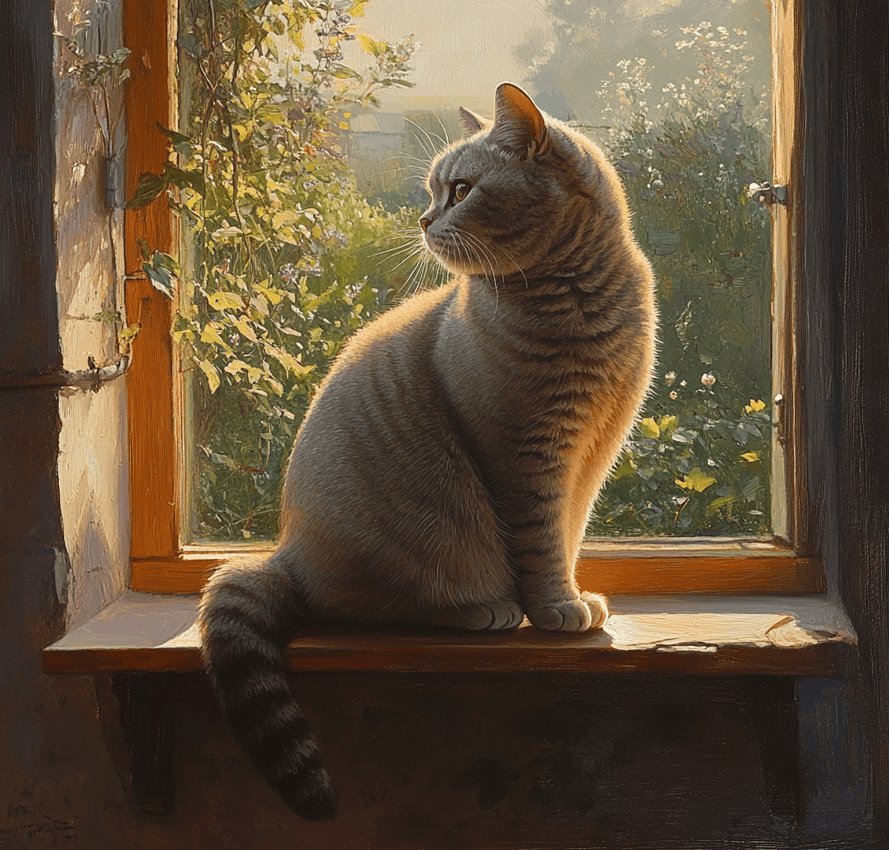
A high-protein diet for British Shorthair cats is not just a luxury—it’s a necessity to support their muscular build, maintain healthy weight, and promote long-term wellness. By choosing high-quality, animal-based proteins, minimizing carbohydrates, and tailoring the diet to your cat’s needs, you can ensure your British Shorthair thrives. Whether you opt for commercial wet or dry food, or explore homemade options, prioritize quality and consult your veterinarian for personalized guidance. With the right nutrition, your British Shorthair will enjoy a vibrant, healthy life full of purrs and play.

